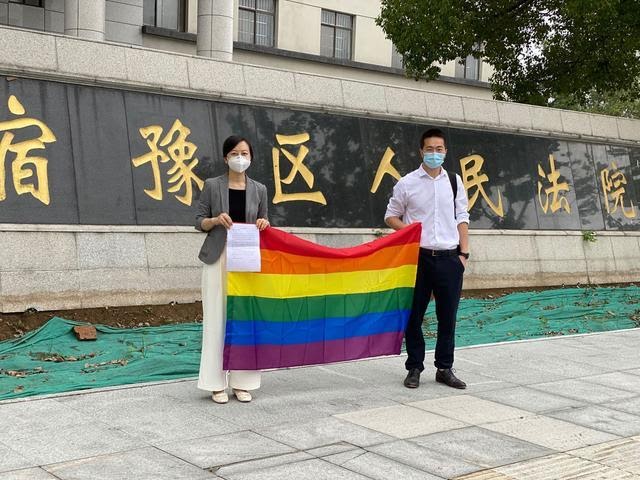Chinese court sides with publisher of homophobic textbooks
A court in Jiangsu Province has ruled in favor of an academic publishing house over a textbook describing homosexuality as a “psychosexual disorder.”

A court in Jiangsu Province has ruled in favor of an academic publishing house over a textbook describing homosexuality as a “psychosexual disorder.”
In a decision handed down on earlier this week, the Suyu District People’s Court in the city of Suqian told the plaintiff, a Chinese college student who preferred to go by the pseudonym Xīxī 西西, that while the two parties held different perceptions of whether or not homosexuality can be classified as a “sexual orientation disorder,” the content didn’t contain “factual errors.”
In the verdict document obtained by Sixth Tone, the court wrote, “Publishing houses should regulate the quality of their books based on laws and regulations, but they are not responsible for censoring academic opinions or cognitive dissonance.”
Xixi has told several news outlets (in Chinese) that she was in talks with her lawyer about appealing the ruling.
For now, the verdict marked a temporary ending of a three-year legal battle over a textbook published by Jinan University Press (JUP), in which being gay is described as “abnormal” and “deranged.” In a paragraph that was found particularly offensive by Xixi, the author states, “Compared with sexual orientation of most people, homosexuality can be seen as a mental disorder or a confusion of sexual desires.”
Before taking her complaints to court, Xixi, then a sociology major at South China Agricultural University, first reached out to representatives and editors at JUP, but the publisher denied responsibility for the content and the editors she was in contact with ignored her requests. She also took the issue up with Guangdong’s Press and Publication Bureau, only to be told that the content she found problematic had no “factual or logical mistakes.”
In 2017, Xixi sued JUP and online retailer JD.com for publishing and distributing anti-homosexual content in textbooks. Interestingly, the gist of her legal argument was not based on discrimination law, but on consumer rights. Xixi alleged that by defining homosexuality as a mental disorder, the textbook was at odds with a decision made by the Chinese Psychiatric Association in 2001, which removed homosexuality from its list of mental illnesses. In her complaints, Xixi called the homophobic content as “factually incorrect” and accused JUP of failing to ensure quality control of its products.
In an interview earlier this year, Xixi revealed that her legal battle had dragged on for too long because the court had canceled hearings for her case multiple times over the past three years, citing reasons such as a lack of evidence.
In the days leading up to the court’s decision, Xixi’s case was closely watched among Chinese LGBT+ activists, who feared that a ruling in the publisher’s favor would discourage other people in China’s LGBT+ community from speaking out or taking legal action in the face of discrimination and oppression.






